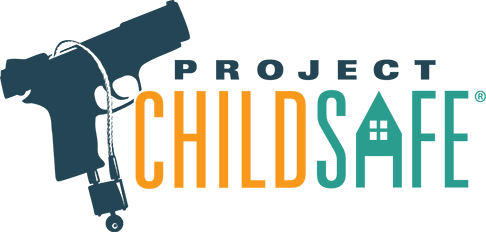Search
Cart
There are no items in your cart.
Login
Navigating Online Firearm Purchases: Recognizing and Avoiding Fraudulent Sellers

The rise of online shopping has made everything from groceries to firearms accessible with a few clicks. However, the convenience of digital transactions also comes with a heightened risk of fraud, especially in the firearms market. As online scams continue to evolve, consumers must stay vigilant and informed. This comprehensive guide aims to help you discern between legitimate online firearm dealers and fraudulent ones, treating the following points as a scoring system for evaluating the overall risk rather than a pass-fail checklist.
1. Suspiciously Low Prices
Firearms, due to their production costs and market demand, command significant prices. Be wary if an online dealer offers rates dramatically lower than the market norm. Compare these prices with other reputable dealers to gauge their validity. If a deal sounds too good to be true, it likely is.
2. Unusual Availability of Rare Firearms
Fraudulent sites might list rare or hard-to-find firearms that are unavailable elsewhere to lure in buyers. If a site claims to have such an item, proceed with extreme caution and verify the dealer's credibility through multiple sources. If you're unfamiliar with the firearm, confirm its rarity across different platforms.
3. Poor Website Design
Though some scammers have graduated to creating professional-looking sites, many fraudulent websites still exhibit telltale signs of deceit, such as poor grammar, spelling errors, low-resolution images, or a lack of uniform design.
4. Absence or Ambiguity of Contact Information
Legitimate businesses readily provide clear contact information, including a physical address and phone number. If this information is missing or appears suspicious (e.g., a PO box or residential address), exercise caution.
5. Lack of Credible Customer Reviews
Customer reviews, both on the website and through external sources, can give valuable insights into a business's legitimacy. Check independent review platforms or firearms forums to corroborate the reviews found on the dealer's website. Beware of sites with no reviews or only glowing endorsements, as scammers can manufacture these.
6. Inadequate Website Security
Ensure the website uses HTTPS encryption, signified by a padlock icon in your browser's address bar. Never provide personal or payment information on a non-HTTPS site.
7. Absence or Vagueness of Policies
Legitimate websites will clearly outline their shipping, returns, and privacy policies. Vague or missing policy details should raise a red flag.
8. Preference for Non-Refundable Payment Methods
Many fraudulent websites favor payment methods that are difficult to trace and non-refundable, such as Zelle or cryptocurrency. Reputable online firearm dealers typically use payment processors tailored to the industry, ensuring compliance with regulations.
9. Lack of Federal Firearms License (FFL) Information
Legitimate firearm dealers in the U.S. must hold and provide information about their Federal Firearms License (FFL). Selling firearms across state lines without an FFL is illegal.
10. Ignoring Background Check Requirements
Federal law mandates licensed firearm dealers in the U.S. to perform background checks on prospective buyers. Any site offering to ship a firearm directly to the consumer as opposed to an FFL dealer is fraudulent.
11. Deviation from Standard Transaction Procedures
In the U.S., legitimate online firearm sales require the firearm to be shipped to a local FFL holder who conducts the necessary background check and completes the transfer. Any site offering to ship firearms directly to consumers is likely a scam or operating illegally.
12. Non-Existent or Limited Social Media Presence
Most legitimate businesses have an active presence on social media platforms. A limited or non-existent social media presence, or a lack of genuine interactions, can be a red flag. However, be aware that social media can be manipulated, and a seemingly active profile does not automatically imply legitimacy.
13. Recently Registered Domain
Scammers often set up and quickly shut down websites to evade detection. Therefore, a recently registered domain can raise suspicion. Domain age checker tools can help verify when a website was established. While not all new websites are fraudulent, exercise extra caution with those that are recently established.
14. Request a Live Viewing Session
A good practice to verify the legitimacy of an online firearm retailer, especially when considering an expensive or rare firearm, is to request a live viewing session through FaceTime or another video call platform. Most reputable dealers will be open to this suggestion. It not only allows you to see the firearm in real-time but also provides an opportunity for you to ask any additional questions you may have. Be wary of dealers who consistently refuse or make excuses to avoid such sessions.
.
Online firearm purchases require a high level of caution and due diligence. It's crucial to thoroughly vet any online firearm dealer before making a purchase. Remember, this guide is not a pass-fail system at the element level; rather, it should be treated as a scoring framework to evaluate the overall risk of dealing with an online retailer.
Don't hesitate to research, ask questions, and most importantly, trust your instincts. If something doesn't seem right, it probably isn't. Always prioritize your safety and legality. If you encounter suspicious or potentially illegal activities, report them to your local law enforcement and to the appropriate online platform.
Remember, staying informed, vigilant, and cautious are your best defenses against online scams. This is particularly true for regulated items such as firearms, where the stakes are not just financial, but also carry potential legal consequences. By using these tips and remaining vigilant, you can help protect yourself and others from falling victim to online firearm scams.
.
NEWSLETTER










Leave a Comment